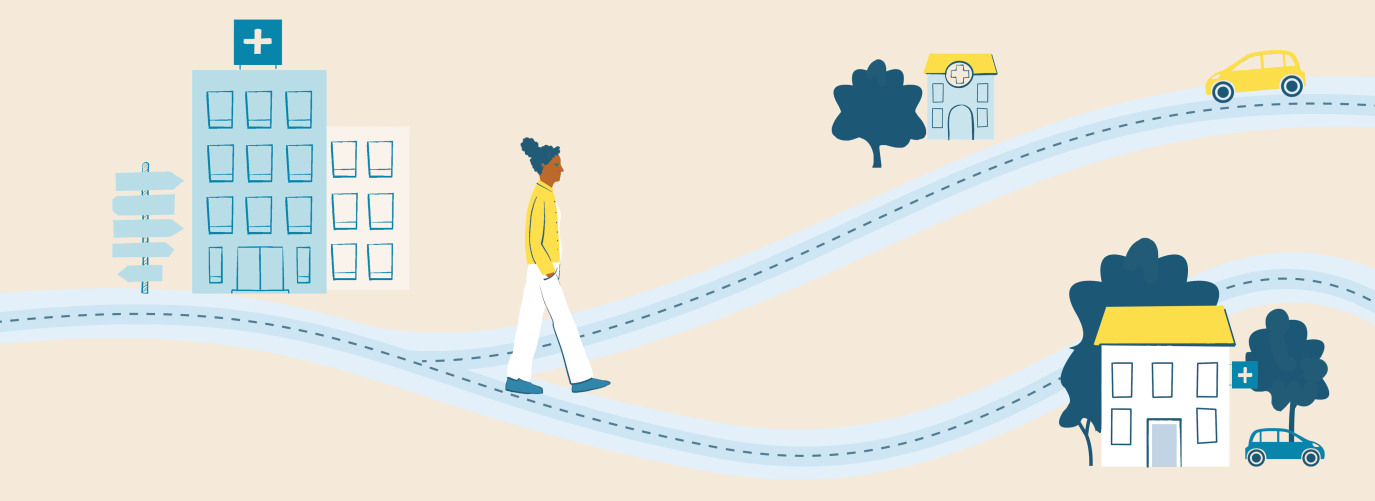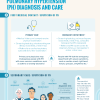Meeting the needs of people with pulmonary arterial hypertension
HPP convened an international expert group to develop consensus on the key opportunities and priorities for the pulmonary arterial hypertension (PAH) community

Context
Pulmonary arterial hypertension (PAH) is a rare and progressive form of pulmonary hypertension (PH) that causes narrowing of the blood vessels in the lungs. If left untreated, PAH leads to heart failure, with high rates of hospitalisation and death.
People with PAH live with an invisible disability that affects every aspect of their lives, including their mental health, education, work, relationships and their ability to walk or complete household tasks. However, because PAH does not typically have a visible physical impact, individuals living with the condition are often misunderstood by healthcare professionals and other people around them.
In the past few decades, scientific advances have opened up opportunities for new treatments that improve survival and halt the progression of PAH. These treatments can support people with PAH to live longer and with a better quality of life.
However, people with PAH typically wait years before receiving a diagnosis, seeing multiple healthcare professionals and being misdiagnosed with common conditions. They also face financial and geographical barriers to receiving effective care and treatment from an expert centre. In some countries, the health system does not reimburse treatment for PAH, creating unacceptable inequalities in outcomes across the world. Currently, one in five people with PAH die within three years of diagnosis.
Communicating the needs of people with PAH and where systems are falling short is essential to addressing these issues and ensuring individuals living with the condition have access to high-quality care.
What we’ve achieved
HPP convened a multidisciplinary group of international experts – consisting of PAH patient advocates, cardiologists and pulmonologists – to support the development of a range of resources.
These included advocacy resources targeted towards specific and specialised audiences (policymakers, health system decision-makers, cardiologists, pulmonologists and rheumatologists) that aim to raise awareness of PH and PAH to ensure early diagnosis and optimal care. These resources provide information such as definitions, signs and symptoms, as well as highlighting key diagnostic tools and the services people living with the conditions need.
A policy toolkit was also developed to support PAH advocates in instigating policy change, equipping them with key information to present to decision-makers. Consensus from the Steering Committee was used to identify critical opportunities for decision-makers to leverage, outlining the policy actions needed to improve the lives of people with PAH. The toolkit can also be used to educate a wider, non-specialist audience; it sets out why PAH is a significant issue, major system challenges and the optimal patient journey.
Both the policy toolkit and advocacy resources were launched at the Annual Pulmonary Hypertension European Conference (APHEC) in November 2024 in Barcelona, Spain. HPP held a session titled ‘Engaging decision-makers for a better future for PAH: learnings from a new policy toolkit’.
A summary of the policy toolkit was developed and translated into Polish to disseminate in the country and discuss with policymakers and leading PAH experts during the Healthcare Priorities Conference, Warsaw, which HPP attended in January 2025.
Key partners and stakeholders
HPP is grateful to the project’s Steering Committee members, who guided the development of this project and its recommendations:
- Dr María Pilar Escribano Subías, Director, Pulmonary Hypertension Reference Centre, Cardiology Department CIBERCV, Instituto de Investigación del Hospital Universitario 12 de Octubre, Universidad Complutense Madrid, Spain
- Pisana Ferrari, President, Italian Pulmonary Hypertension Association (Associazione Italiana Ipertensione Polmonare, AIPI); Secretary General, Alliance for Pulmonary Hypertension, Italy
- Melanie Gallant, Director, Association of pulmonary arterial hypertension patients, carers and transplant receivers (Association des malades, aidants & transplantés hypertension pulmonaire, HTaPFrance), France
- Professor Marc Humbert, Director, Department of Respiratory and Intensive Care Medicine, Pulmonary Hypertension Reference Centre, Hôpital Bicêtre, France
- Elizabeth Joseloff, Vice-President Quality Care & Research, Pulmonary Hypertension Association (PHA) US
- Professor Nicholas Kolaitis, Director of Bronchoscopy, Division of Pulmonary, Critical care, Allergy and Sleep Medicine, University of California San Francisco, US
- Natalia Maeva, President, Bulgarian Society of Patients with Pulmonary Hypertension, Bulgaria
- Jamie Myrah, Executive Director, Pulmonary Hypertension Association (PHA) Canada
- Eva Otter, Vice President, Pulmonary Hypertension Association (PHA) Europe, Austria
- Professor Jay Suntharalingam, Clinical Lead, Pulmonary Hypertension Service, Royal United Hospitals Bath, UK
HPP is also grateful to the other experts consulted during this project:
- Barbara Bujar, Board Member, Pulmonary Hypertension Association (PHA) Poland
- Hall Skaara, Advocacy Manager, PHA Europe, Norway
- Beth Slaunwhite, Board Director, PHA Canada
- Sean Taylor, Director of Science and Public Health, World Heart Federation, Switzerland
- Durhane Wong-Rieger, President, Canadian Organization for Rare Disorders, Canada
Project funding
Project materials were drafted by The Health Policy Partnership, who held editorial control under the guidance of the Steering Committee. The development of this report was initiated and funded by Merck Sharp & Dohme LLC. The experts involved in the Steering Committee provided their time for free.



